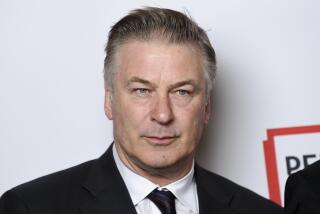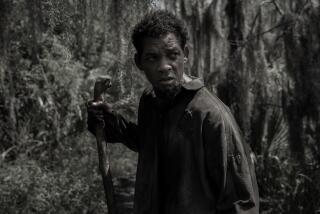‘Gates’ chronicles Rwandan genocide
- Share via
“Beyond the Gates,” which opens Friday, chronicles the first five days of the horrific 1994 Rwandan genocide in which extremists from the Hutus, the country’s majority tribe, went on an ethnic-cleansing rampage, turning machetes and machine guns on the minority Tutsis.
When the violence broke out, some Tutsis and moderate Hutus took refuge at the Ecole Technique Officielle in Kigali. The secondary school was also the base camp for U.N. peacekeepers from Belgium. But after the Belgians were ordered to vacate, the Hutu extremists swarmed in and killed about 2,500 people.
“Beyond the Gates,” directed by Michael Caton-Jones (“Basic Instinct 2”) and filmed at the actual locations, stars Hugh Dancy (“Elizabeth I”) as an idealistic young British teacher and John Hurt as the school’s Catholic priest.
Dancy, who is currently on Broadway in a revival of the World War I drama “Journey’s End,” admits he was ignorant about the Rwandan genocide -- “forget about 1994, but even in 2004, when I first heard of the project. This was before ‘Hotel Rwanda’ came out.”
Although the incidents in the film are true, the Dancy and Hurt characters are constructs.
“We are there for dramatic reasons and for our different responses and different understandings -- kind of alternative conduits for a Western audience,” Dancy says.
“There is no one or two or even three people that add up to my character. But in terms of the kind of person who would have been out there then, I think we are pretty much on the money.”
Photos of genocide survivors who worked on the film’s crew are shown during the ending credits, with information as to whom they lost in the ethnic cleansing.
“Everybody [there] is a survivor in one way or another -- the people in the hotel where we stayed, the people you meet on the street,” Dancy observes.
“It’s there in every encounter you have. Every part of the country is marked just beneath the surface by this event. You simply can’t get away from it. That’s why you went there to film it, because [the reality] filters into the movie and onto the screen.”
*
-- Susan King
More to Read
Only good movies
Get the Indie Focus newsletter, Mark Olsen's weekly guide to the world of cinema.
You may occasionally receive promotional content from the Los Angeles Times.











